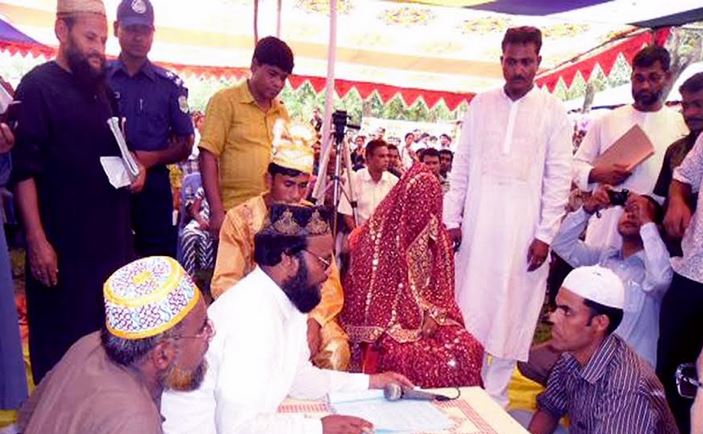News Flash
News Flash

By Md Mamun Islam
RANGPUR, Sept 3, 2025 (BSS) - With increased public awareness, the incidence of social curses such as child marriage, dowry, polygamy, torture and violence against women has significantly reduced in rural areas of the northern region.
Experts and officials say that awareness-raising activities conducted by government and non-government organizations, volunteers, women and students are contributing to the reduction of social evils, brightening the prospects of achieving the Sustainable Development Goals (SDG) on time.
Assistant Director of the Rangpur District Information Office Md Alamgir Kabir said the government through various departments, organisations, Television, Betar and Union Digital Centers (UDCs) is conducting massive awareness enhancing publicities.
"Consequently, rural people are easily getting information on child marriage, dowry, polygamy, violence against women, marriage registration, safe motherhood, nutrition, health, sanitation and drinking water," he said.
District Information Offices are conducting extensive awareness-raising activities in rural areas with rural community leaders, public representatives, religious leaders, women, adolescents and youth on gender-related issues and social stigma.
"As a result, the extent of social stigma is decreasing on the way to building a developed and peaceful society," Alamgir Kabir added.
Rangpur Deputy Commissioner Muhammad Rabiul Faisal said that awareness-raising activities are being conducted in rural secondary level educational institutions along with preventive measures against the social curse.
"Following the positive impact of motivational and preventive activities, the schoolgirls as well as the upazila administration, union-level public representatives and NGOs are stopping child marriage in time to save minor girls," he said.
Divisional Director (Health) Dr Mohammad Gousul Azim Chowdhury said that awareness building publicity programmes being conducted by the health and family planning departments have been proved very effective in rural areas.
"The rural people are becoming aware of child marriage, dowry, repression, trafficking, birth registrations, family planning, health, nutrition, sanitation, pure drinking water, safe motherhood, maternal and neonatal moralities," he said.
Dr Nasima Akter, a women activist and President of the Rangpur District Corruption Prevention Committee, said rural women are becoming interested in educating their daughters and their marriage through registration at an advanced age.
Arifuzzaman Moon, an entrepreneur at Saddyapuskorini UDC under Rangpur Sadar upazila said many rural youths, women, adolescents, guardians, students and pregnant mothers are visiting the UDC to have knowledge on social curses and way-outs.
"The rural women community is becoming more aware of nutritional aspects and producing nutritional vegetables and fruits on their homesteads and courtyards to feed their children after getting knowledge from UDCs," Moon added.
Northbengal Institute of Development Studies Chairman and researcher Dr Syed Samsuzzaman said UDCs are playing an important role in building a prosperous new Bangladesh along with contributing to reducing social problems.
"Getting knowledge from UDCs and publicities being conducted by District Information Offices, administrations, public representatives and NGOs, rural people are preventing child marriage and arranging dowry-free marriages," he said.
In the past, child marriage, dowry, malnutrition, neonatal and maternal mortality rates were high and rural pregnant mothers had a little access to improved health care and safe delivery facilities.
"Following motivational activities and providing services through community clinics in rural areas, pregnant mothers are delivering babies safely and incidence of social curses reducing, pushing the nation towards achieving the SDGs," he added.